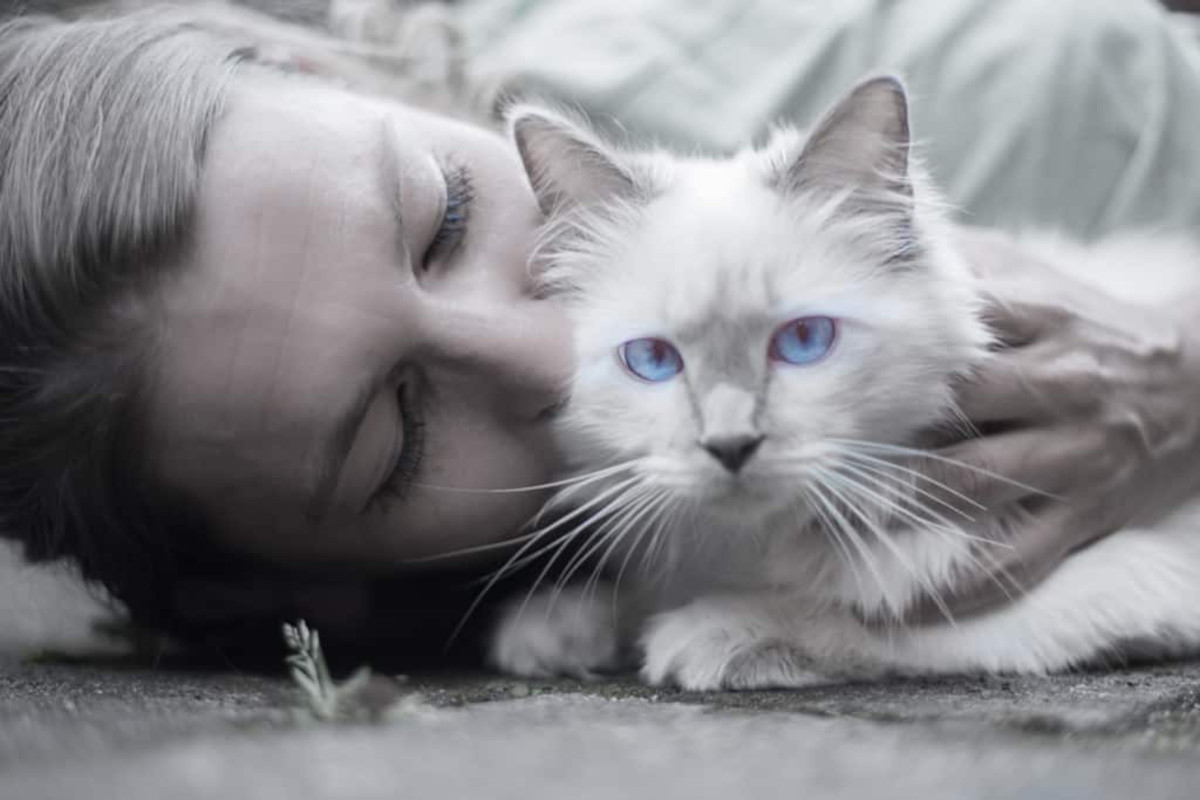Cat Bereavement – Helping Your Cat Cope With The Loss of Other Pets

Cat Bereavement – Do Cats Grieve?
Cat bereavement is not as obvious as the same emotion displayed by dogs. This is because dogs are much more expressive, they generously wag their tails and often jump about with excitement when they see you and are consistently much more responsive than cats.
Cats tend to do their own thing, they are very independent and if they are not out and about checking their territory for many hours of the day they are probably sleeping! It is sometimes said, “dogs have owners, cats have servants!” This independence can make it harder to see the signs of a sad or depressed cat. But cats do grieve when they lose a friend and you may need to watch out for changes in behaviour.
Cat behaviour signs that you could interpret as Cat Bereavement
- Vocal signs
- Unhappy cat noises are usually low pitched, mournful yowls.
- Purring doesn’t always indicate happiness and unhappy cats or cats in pain might purr as a way of comforting themselves.
- Some cats that are normally vocal may become quiet while quiet cats may become start to make themselves heard, so you are looking for a change in the normal vocal behaviour of your cat.
More signs of a depressed or sad cat
Some more signs that your cat may feel depressed or sad are as follows:
- Sad cats may also tend to be more reactive and can lash out with aggression. Your cat may do this because they’ve lost a friend.
- We all know that most cats sleep a lot, a sad cat may sleep more than usual or maybe sleep in a different place to their normal bed.
- Poor grooming is another sign of ill health or unhappiness.
- Your cat may go off its food.
- When cats are stressed they spray urine or will soil in the house, which actually makes them feel more secure by enhancing their usual scent and protecting their territory.
- Scratching or over-grooming is quite often the sign of an anxious, sad or stressed cat.
- Cats may search the house, meowing for their missing friend.
- Idiopathic cystitis can be the result of a stressed or anxious cat. You can notice this when your pet has very frequent trips to the litter tray, passing small amounts of urine and even passing blood in the urine.
- If your cat is normally quiet, they may become clingy or possibly start to hide away from you.
Changes in your cat’s behaviour may be subtle or or obvious. You know your cat best, so look out for even small changes. Even though you may be grieving yourself, you surviving cat will need you more than ever now, the need is likely to be mutual.
How to help with your cat’s bereavement
- Keep the routine the same, familiarity is in itself a great comforter.
- Spend time with them giving comfort and affection, you may both need this.
- Special pheromone diffusers can help, they contain synthetic “happy cat” pheromones which can help calm your cat and even reduce soiling in the house if this has been a problem.
- Tempt your cat to eat with strong-smelling food like fresh fish or chicken.
- Hand feed if necessary.
- Remove your deceased pet’s bedding, so your cat can get used being alone.
Keep everything as regular and everyday as possible. Any changes in routine or anything new can cause confusion which may result in the cat’s defense mechanism – urine spraying. If this occurs it may be distressing for you, which your cat will pick up on, I am sure you can see the risk for accelerating any feelings of stress.
As with any behaviour changes or worries that you have,see your vet for a check-up if it doesn’t improve.
Tags: coping with the loss of a petCloud 9
To ensure accuracy, a professional vet has reviewed and verified the information presented in this article. It is important to note that when it comes to making decisions about euthanasia for your pet, there are no easy answers. It is always recommended to seek advice from your own veterinarian before making any decision.


